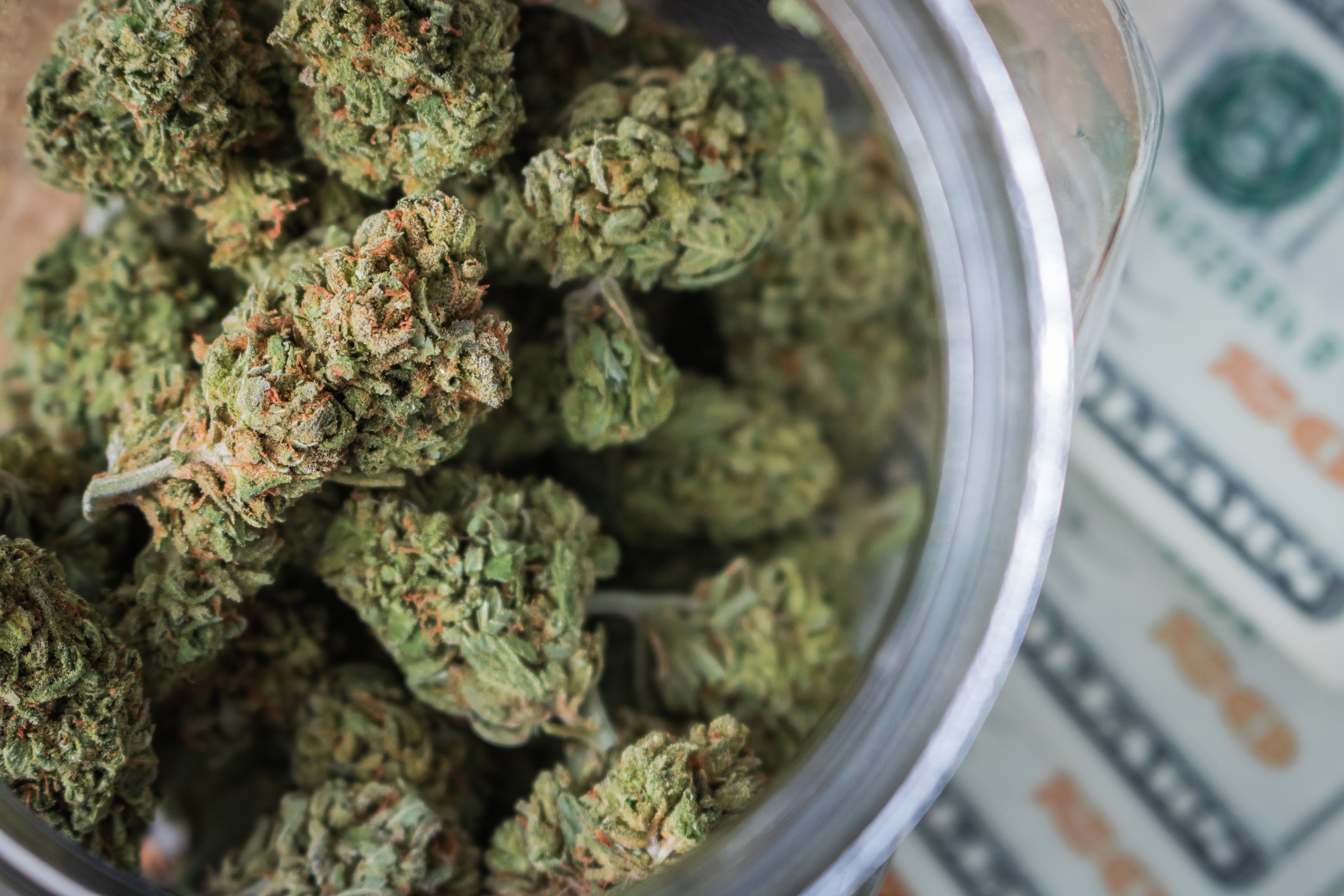What a difference a year can make.
At this time last year, the marijuana industry was fully expected to see its rapid sales growth result in recurring profitability within a year's time. Further, ongoing state-level legalizations in the U.S., coupled with the launch of derivative pot products in Canada, were believed to be a means of improving cannabis stock margins. However, all of these forecasts proved too aggressive, with the North American cannabis industry suffering from a combination of supply issues and high tax rates, both of which encouraged illicit producers.
Not only did these struggles throw out any hopes of near-term profitability for most brand-name pot stocks in the industry, but it also disrupted merger and acquisition activity within the cannabis space. A number of deals that looked like slam-dunk winners when announced have become a source of unrest for shareholders.

Image source: Getty Images.
Cresco Labs' buyout of Origin House was filled with promise
One such cannabis stock merger that began with a ton of promise, but seemed to limp to the finish line, was that of vertically integrated multistate operator Cresco Labs (CRLBF +0.00%) and Origin House (ORHOF +0.00%).
On April 1, 2019, Cresco Labs shocked Wall Street by announcing an all-stock acquisition of Origin House, a company that primarily earned its living as a cannabis distributor in California. The deal, which would result in Origin House shareholders netting 0.8428 shares of Cresco for every share of Origin House they owned, was the largest U.S. pot stock acquisition announced at the time. Based on Cresco's respective share price at the announcement of the deal, the price tag looked to be worth around $840 million.
As noted, what made Cresco's purchase of Origin House so unique is that Cresco wasn't looking to simply buy retail licenses, grow farms, and processing sites. Rather, it found that the best way to grow sales and infiltrate the largest marijuana market in the world (California) was to acquire one of the very few companies to hold a cannabis distribution license in the Golden State. Buying Origin House allows Cresco Labs to get its products into approximately 575 California dispensaries, representing about 65% of all legal retail locations in the state.
Additionally, this buyout makes Cresco Labs privy to Origin's relatively consistent distribution revenue tied to its more than one dozen third-party brands. Not to mention, Cresco gains access to Origin House's 92,000-square-foot indoor cultivation facility in California, which will further aid in the company's efforts to entrench its footprint in the Golden State's cannabis market.
It was a great deal on paper that quickly lost its pizzazz as time wore on.

Image source: Getty Images.
This now-closed deal has been a disappointment all around
This past week, on Wednesday, Jan. 8, Cresco announced that its deal to acquire Origin House was finally complete, more than nine months after it was initially announced. However, the terms of the now-complete merger aren't the same as they were when first divulged in April.
In mid-November, Cresco and Origin House amended their original agreement, which the duo attributed to dynamic market conditions. Instead of Origin House shareholders receiving 0.8428 shares of Cresco Labs for every Origin House share they owned, they'd instead receive 0.7031 shares of Cresco Labs. This means the 66.5 million shares of Cresco used to acquire Origin House this past week (along with a substantial decline in Cresco's stock) more than halved the value of the deal when first announced.
The amendment also required Origin House to issue more than 9.7 million shares of its common stock to raise $30.5 million. This request was the real eye-opener that not everything was hunky dory with the impending combination. Without access to traditional forms of financing, U.S., pot stocks have genuinely struggled to fund their operations. Cresco, among other capital-raising means, has executed sale-leaseback agreements with Innovative Industrial Properties for two Illinois properties, and required Origin House to raise capital by issuing its common stock.
Remember, even though the combination means an immediate boost in sales for Cresco and quick access to Californian dispensaries, it also involves taking on Origin House's expenses and, for the time being, its operating losses. Origin House lost $47.2 million Canadian from operations through the first nine months of 2019, representing a 139% widening in operating losses from the same period in 2018.

Image source: Getty Images.
Here's what needs to happen for this deal to pay dividends
Even though the deal is finally done, there's been little for Cresco Labs or Origin House shareholders to cheer about. But this combination could begin to pay dividends, assuming some regulatory changes are made in California.
For one, the new Cresco needs to see California's jurisdictions step up their licensing of dispensaries. As an example, in November, the Los Angeles City Council requested a redo on the assignment of 100 marijuana dispensary licenses. The Council suggested that some of the applicants may have gained an unfair advantage by accessing the online licensing application early. The city of Los Angeles is home to about 4 million people, and many of these folks have very few legal dispensary options at the moment.
California is also going to need to (pardon the pun) weed out its black-market presence. Not only are more dispensaries needed, but the state needs to do something about its exorbitant tax rate on legal cannabis. By working with law enforcement to drive out illicit producers, consumers will be shifted into legal channels.
Banking reform is also sorely needed at the national level. U.S. cannabis stocks have minimal access to basic banking services, which is why Cresco Labs had to turn to sale-leaseback agreements and requested Origin House to raise capital. The "new" Cresco would be on much better footing if access to capital were easier for pot stocks.
Clearly, there are still a lot of questions to answer about this combination. Hopefully shareholders will know more by the end of the year.







